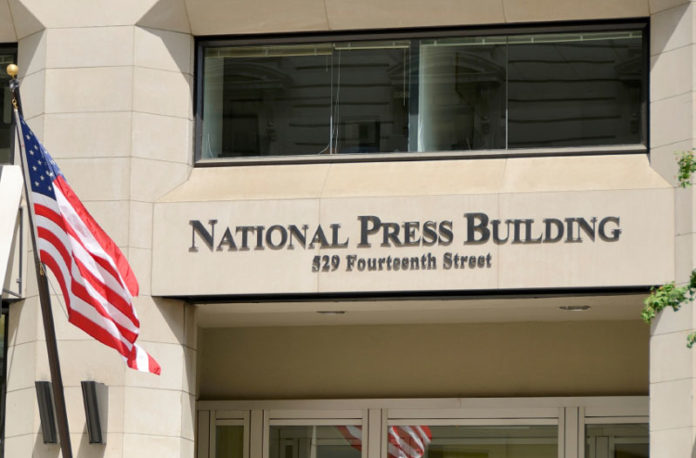The National Press Club’s Freedom Press Committee released its report on freedom of the press in 2014.
The results show a continued decline of access for journalists and what the committee described as “insidious bureaucratic efforts” to keep the press at bay.
Here’s what the group had to say:
In the United States, reporters do not face physical threats so much as an expanding set of insidious, bureaucratic efforts to stymie journalists. American agencies at all levels, as well as corporations, are increasingly barring employees from talking to reporters about the public’s business, except when under the watchful eye of public affairs specialists.
The good news in the cases of Risen and Hosey came only after protracted periods when these two men faced judicial punishment for doing their jobs. Too often, prosecutors and judges put reporters in such situations, and it threatens the ability of sources who need to remain anonymous to trust that their identities can be kept quiet. In a recurring failure to address this problem, Congress once again failed this year to send the president a bill that would provide a nationwide shield protecting reporters from having to reveal anonymous sources except in certain circumstances.
The Pentagon, meanwhile, is not allowing reporters to embed on military missions against Islamic State targets, and the Defense Department is restricting access to information about conditions at its prison in Guantanamo Bay, Cuba. At the same time, unclassified documents in trials for alleged terrorists are being kept from reporters’ eyes.
Law enforcement personnel also targeted reporters. In Ferguson, Mo., this year, police roughed up reporters and restricted their physical movements–a too frequent occurrence.
At the same time, we find that U.S. borders are civil liberties dead zones where U.S. border agents regularly search and seize reporters’ computers, cameras and notebooks.
The Freedom of Information Act, or FOIA, is failing. It takes so long to obtain records under the law, and they are often so heavily redacted, that the law is losing its value for the press. U.S. congressional leaders, at the end of the session this year, permitted a bill that would strengthen FOIA to die, despite widespread bipartisan support for it in the House and Senate. Moreover, reporters’ Freedom of Information Act requests are increasingly reported to public affairs officers and other political appointees so they can monitor reporters’ work.
“There’s a lot of work to do in 2015 to push back on restrictions placed on the press,” Belkind said.
The National Press Club has been around since 1908 and the Club (complete with restaurant and bar) is a go-to location for journalists to mingle with key players in Washington.
Access to unrestricted FOIA disclosures took a turn for the worse with heavy redactions becoming more common during the Bush Administration, however, under the Obama Administration, many journalists feel Obama has gone beyond limiting access and has started combatting the Fourth Estate as evidenced by the Justice Department’s actions against James Risen and others.






























